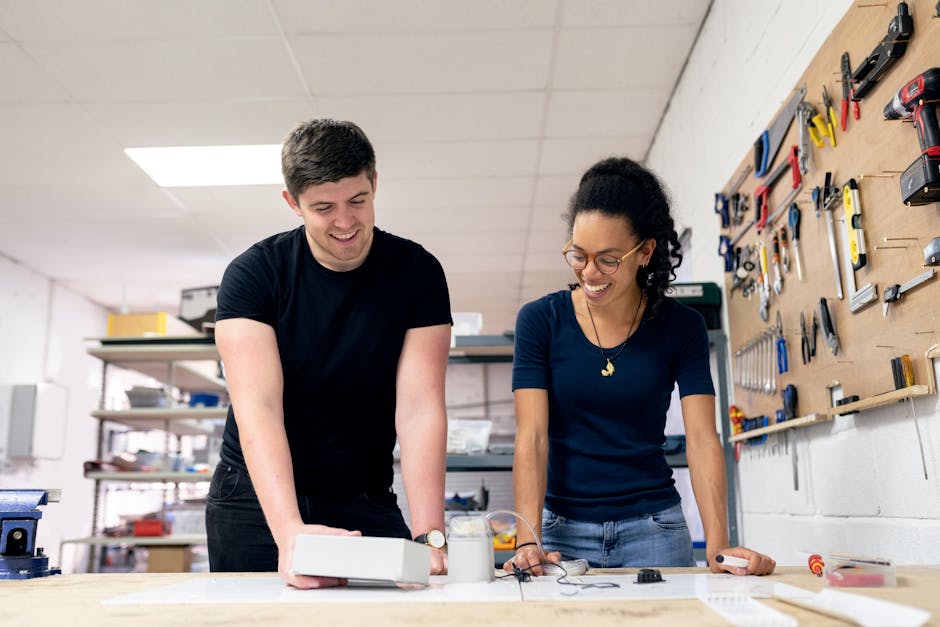
Estate planning might seem like a daunting task, but attending a workshop can simplify the process and bring invaluable peace of mind. Discover how an estate planning workshop can guide you through the complexities of wills, trusts, and more in a friendly, understandable manner.
The Importance of Estate Planning for Everyone
Many people underestimate the importance of early estate planning, often dismissing it as something for the wealthy or the elderly. However, the truth is far more inclusive. From safeguarding your assets to ensuring your children’s future, estate planning is a fundamental aspect of responsible adulthood. It transcends socioeconomic status, offering peace of mind and security for everyone involved.
Attending an estate planning workshop can demystify the perceived complexities surrounding the topic. These workshops provide a solid foundation, offering insights into the basic components of estate planning such as wills, trusts, healthcare directives, and powers of attorney. Not only do they illuminate the path forward, but they also stress the significance of having a plan in place well before it’s needed.
What You Can Expect to Learn at an Estate Planning Workshop
Imagine walking into a room knowing little about estate planning and leaving with a comprehensive understanding that empowers you to take action. That’s the transformative experience many attendees describe after participating in an estate planning workshop. Professionals break down legal jargon into understandable language, discuss the latest laws affecting estate planning, and outline steps to create or update an estate plan that reflects your wishes and circumstances.
Workshops often dive into the nuances of selecting executors and trustees, the responsibilities associated with these roles, and how to effectively communicate your desires with those you trust. Experts share strategies for minimizing taxes and fees, preserving assets for future generations, and ensuring your health care wishes are honored. Through real-world scenarios and Q&A sessions, participants gain practical insights into navigating their estate planning journey.
Overcoming the Intimidation of Estate Planning
For many, the thought of estate planning conjures images of dense legal documents and difficult decisions. However, workshops are designed to dispel these fears, offering a supportive and informative environment where questions are encouraged. By breaking down the process into manageable steps, facilitators help attendees see estate planning not as a daunting task, but as a series of achievable goals. This shift in perspective can be empowering, transforming apprehension into action.
Additionally, workshops provide a collegial atmosphere where participants can share experiences and concerns with others in similar situations. This sense of community fosters a supportive network, making the estate planning process less isolating and more approachable.
Practical Steps to Take After Attending a Workshop
Taking the first step is often the hardest part, but armed with knowledge and resources from a workshop, you’re well-prepared to begin your estate planning journey. A good starting point is to gather all necessary documents and information, such as property titles, insurance policies, and financial statements. Compiling a comprehensive list of assets and liabilities provides a clear overview of your estate, making the planning process smoother and more efficient.
Next, consider scheduling a consultation with an estate planning attorney who can offer personalized advice and help navigate complex legal waters. This professional can assist in drafting your will, establishing trusts, and ensuring that your estate plan complies with state laws. Remember, estate planning is not a set-it-and-forget-it process. Regularly reviewing and updating your plan to reflect changes in your life and the law is crucial.
How to Choose the Right Estate Planning Workshop for You
Selecting the right estate planning workshop can feel overwhelming, but focusing on a few key factors can simplify the decision. Look for workshops led by experienced professionals with expertise in estate planning. Checking reviews and asking for recommendations from trusted sources can also provide insights into the workshop’s effectiveness and the instructors’ ability to convey complex information in an understandable way.
It’s also important to consider the workshop’s structure. Does it offer interactive opportunities like Q&A sessions, or is it primarily lecture-based? A workshop that encourages participant engagement may provide a more enriching and personalized learning experience. Finally, assess whether the workshop addresses the specific aspects of estate planning most relevant to your situation, such as managing digital assets or navigating international estate laws.
Making Estate Planning an Approachable Topic for Families
Discussing estate planning with family members is often seen as a challenging conversation, but it’s a crucial one. An estate planning workshop can equip you with the tools and language to approach this topic with confidence. Framing the conversation around care, protection, and the desire to avoid future conflict can open a constructive dialogue. Share what you’ve learned, emphasizing how planning now can preserve not just assets, but relationships and peace of mind.
By making estate planning an approachable topic, you’re not only securing your own legacy but also instilling the importance of proactive planning in the next generation. This can lead to a family culture that values and understands the importance of planning for the future, laying a foundation of stability and clarity for years to come.
Secure Your Legacy with Confidence
Embarking on the journey of estate planning ensures that your wishes are respected and your loved ones are cared for in the future. An estate planning workshop is a golden opportunity to gain clarity, confidence, and a comprehensive understanding of this crucial process. Take that first step towards securing a legacy of love and peace of mind for yourself and your family.






